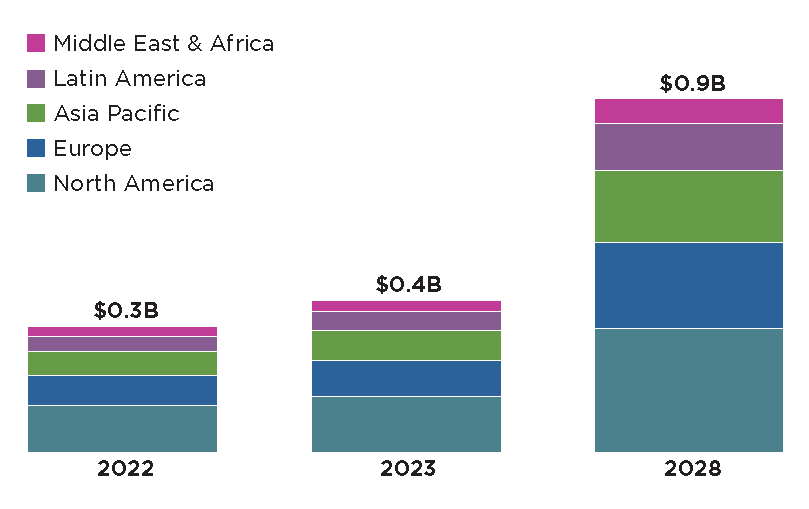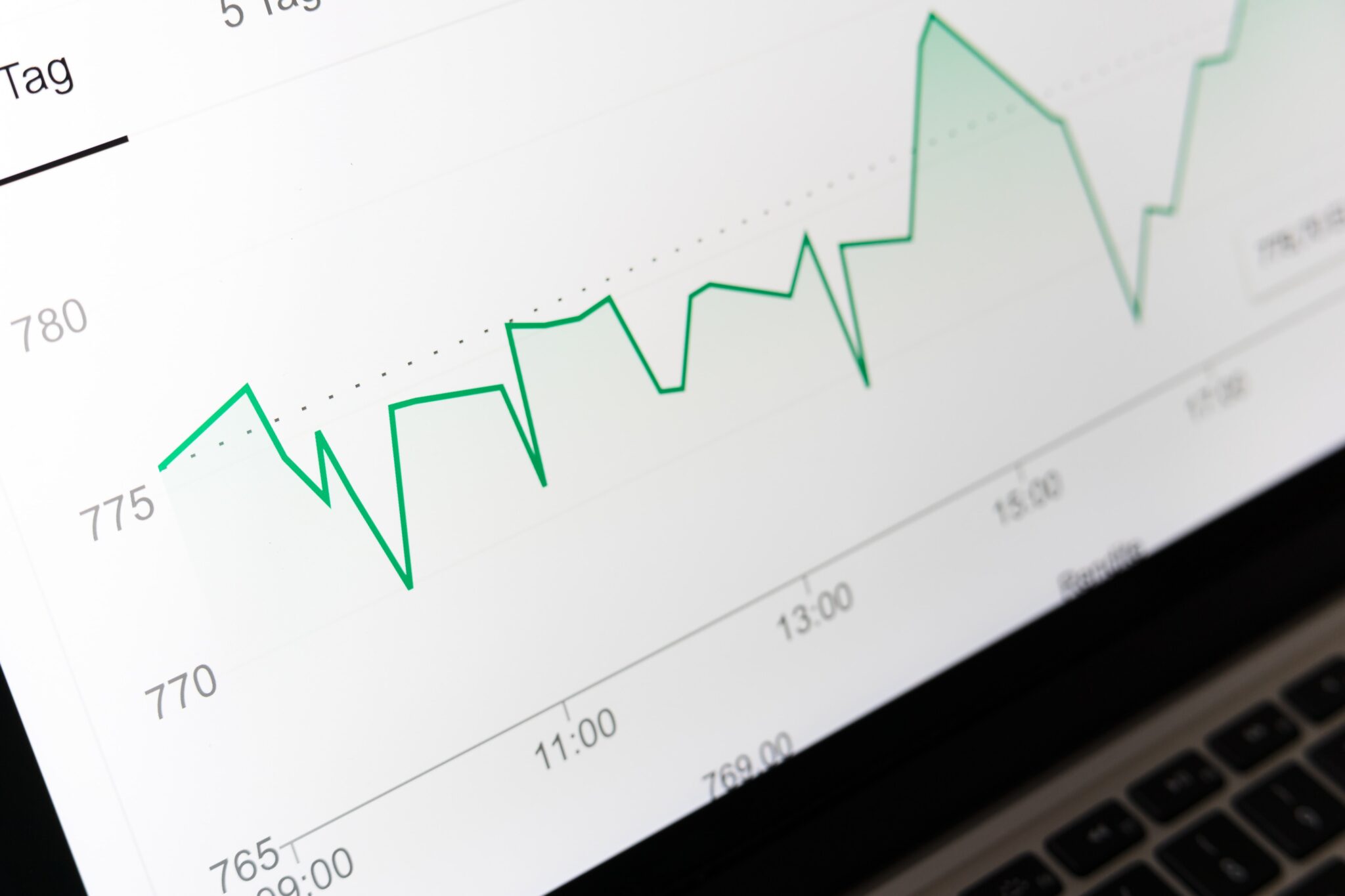Health data is becoming a hot commodity for pharmaceutical companies, insurance providers, and healthcare systems looking to make savvier decisions. Bad calls, like a misdiagnosis, lead to hundreds of thousands of preventable deaths every year, according to separate research by Stanford and Johns Hopkins universities.
Poor decisions also cost money. According to a 2019 study published in the Journal of the American Medical Association, up to $935 billion is wasted on overtreatment, administrative costs, and inconsistent pricing every year. A 2021 analysis by The New York Times found huge pricing variances between insurance providers. A colonoscopy, for instance, could run anywhere from $728 to $1,801.

The Health Data Market is Growing
Health data is plentiful, but not easy to access. Databases such as Athenahealth or Epic Systems are supposed to be interoperable, but that isn’t always the case. Instead, human intermediaries relay information between patients, care providers, and insurance companies, often using old-school fax machines.
But there’s another source of data that’s easier to access and analyze: user-generated health stats from smartwatches and mobile health apps. What’s more, advances in artificial intelligence and machine learning are now helping doctors diagnose better, or at least quicker. For instance, Temple Hospital in Philadelphia is using AI to scan and diagnose blood clots.
With all these advances, MarketsandMarkets forecasts the health data market to double over the next five years, reaching $900 million by 2028. This boom presents three types of investment opportunities.
Opportunity #1: Raw Data Collectors
Several companies are creating data markets that empower not only big healthcare companies but individuals who opt to share their statistics.
Evidation, for instance, incentivizes users to share anonymized information from wearables and fitness apps that track metrics like step count and sleep quality. Users can also participate in surveys about conditions such as seasonal flu symptoms or heart issues. In exchange, they earn points that can be cashed out or converted into a gift card.

In 2022, fitness-tracking app company Sweatcoin launched its own cryptocurrency. Instead of just earning points for their data, people can now earn digital assets such as its native cryptocurrency, SWEAT, or collectibles in the form of non-fungible tokens (NFTs).
JennyCo has gone further by creating a tokenized health data exchange where users can upload more detailed health information, like results from a DNA test kit. In return, they receive personalized AI-generated wellness insights and ownership rights to their data, stored on the blockchain. Users can opt to lease it anonymously to businesses or research institutes, and JennyCo generates revenue by facilitating these exchanges. Users can also mint NFTs to trade on a marketplace like OpenSea. (NFTs aren’t always pieces of digital art; they can verify ownership of any assets.)
“We think as data interoperability…gains adoption this will continue to grow,” says Jay Krishnan, a partner at McKinsey & Company. “Some key considerations would be ensuring data security through technologies like tokenization, among others.”
If blockchain becomes more widely used in healthcare, this type of personalized data could be integrated with electronic health records. It could help solve privacy and security concerns by encrypting data, offering interoperability between different systems and end users, and giving people more of a say in how their information is used.
Investors, in addition to the users, can trade cryptocurrencies and NFTs tied to health information, enabling individuals to invest in the data itself, not just the startup collecting it. If the model for personalized data ownership takes off, assets tied to that information may become more valuable down the road.
Opportunity #2: Proprietary Data-Analysis Tools
Collecting raw health data is an important first step. But it’s only valuable with the right analysis tools. Startups developing proprietary algorithms can unlock this value. “We continue to see the primary orientation of new innovative companies as taking data and analytics and combining it with some type of service or offering to drive value,” says Neha Patel, partner at McKinsey & Company.
Clarify Health, for instance, provides both its own collected datasets and a comprehensive analytics tool. Its Clarify Atlas Program generates AI-powered predictions and clinical insights; and the recently launched generative AI tool Clara works with its datasets to process information quicker and more precisely.
Big tech companies like Google and Amazon are also signaling their interest. Google was an early investor in the DNA testing kit company 23andMe and acquired the fitness tracking wearable company Fitbit in 2021. In the same year, it announced the launch of Google Cloud Healthcare Data Engine, a platform that enables enterprise-level analysis from a variety of sources. In 2021 Amazon Web Services launched Amazon HealthLake, a HIPAA-compliant cloud storage and analytics provider.

Investors can look for opportunities to partner with startups directly as angel investors or work with venture capital funds that are investing in these companies. For instance, Lux Capital started an ETF in 2022 that focuses on digital health companies.
Opportunity #3: Big Healthcare
Healthcare powerhouses such as pharmaceutical manufacturers and insurance providers are developing their own in-house data science capabilities. Such mature companies can offer a less-risky complement to investments in startups.
Pharma companies, for example, can increase the efficacy of new drugs and get them to market quicker using so-called “real-world health data” to complement clinical trials and extrapolate results across an entire population. In 2017, AstraZeneca conducted its first real-world evidence study demonstrating the effectiveness of its type-2 diabetes treatments, Farxiga.
On the provider side, artificial intelligence used in combination with electronic health records may reduce costs by as much as $360 billion a year, according to a 2023 report by McKinsey and Harvard University. For instance, the report found that employing AI in hospitals could save anywhere from $60 billion to $120 billion over the next five years, with 40% coming from reducing administrative costs.
Take Risks into Account
While new technologies promise to revolutionize healthcare, they still have a lot of weaknesses. AI can analyze far more data, far more quickly, than humans; but it’s also known to hallucinate and fabricate results. And Silicon Valley sometimes gets out of its depth. IBM’s much-hyped Watson Health failed to provide good recommendations for oncologists because it didn’t have enough data. It was sold in 2022 for $1 billion—after IBM spent more than $4 billion acquiring companies with medical training data.
Blockchain promises to boost security and privacy while enabling greater interoperability between providers and patients. But blockchain-based solutions have yet to be implemented at scale and may not be as effective as promised.
Security and privacy are also minefields. As it grows more valuable, health data becomes a prime target for hacks and breaches. In 2014, criminal hackers broke into Anthem’s servers, stealing up to 80 million records. This remains the worst health data breach in U.S. history.
Health data collectors and handlers stress that personal information is anonymized. But the growing ability to analyze large datasets may undo that. In 2019, scientists in the United Kingdom and Belgium created an algorithm to re-identify individuals from anonymous data, including medical records.
Matthew McCoy, assistant professor of medical ethics and health policy at the University of Pennsylvania, says that the average person isn’t too keen on companies using their personal data. Those companies should have “real processes in place, governance for ethics review, and for social impact assessment of what their products are doing,” he says.
Before investing in health data startups or even mature companies, perform your due diligence to ensure they have the right teams and policies to mitigate the many risks













